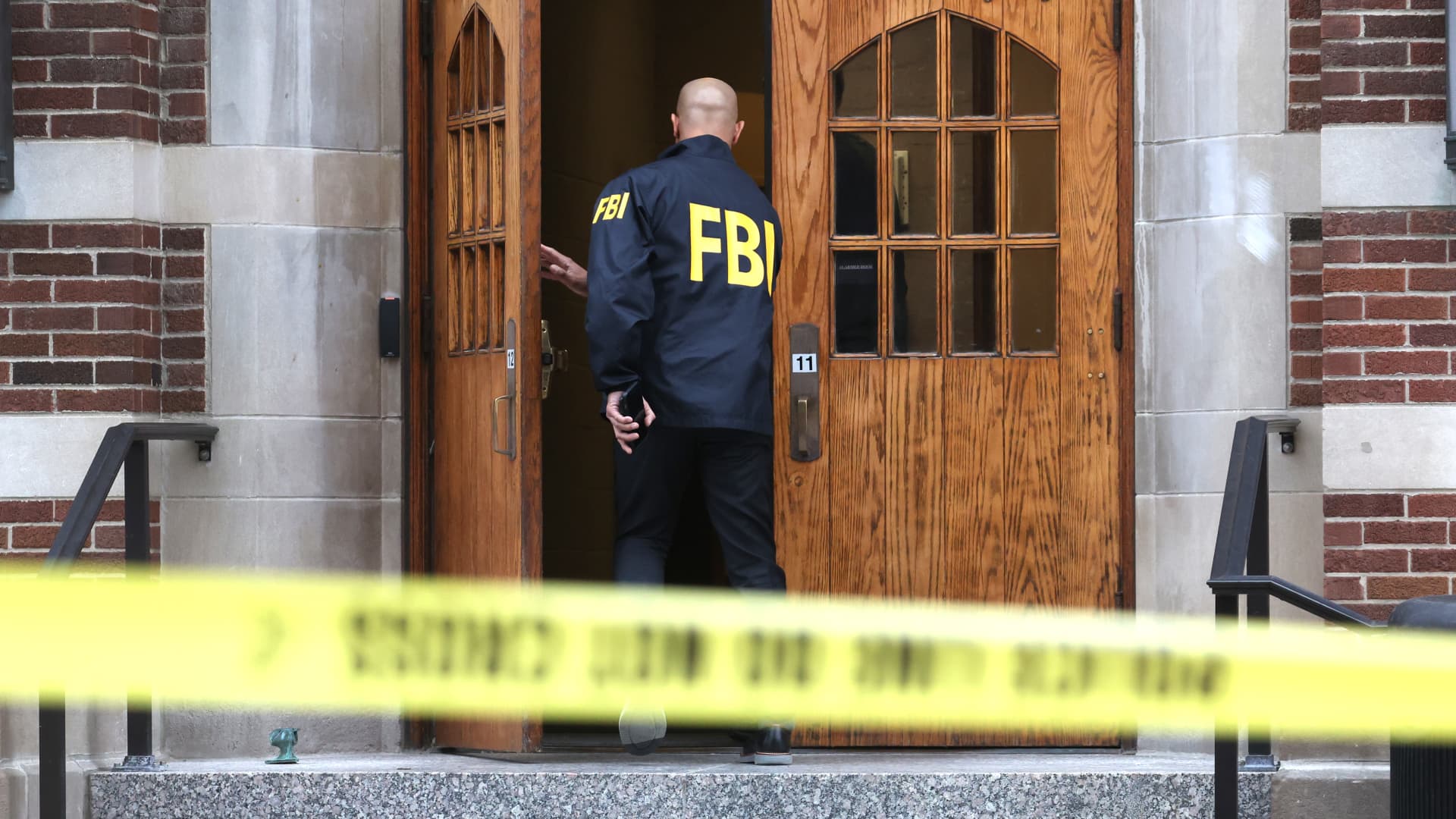FBI returning agents to counterterrorism work after diverting them to immigration

An FBI agent enters Berkey Hall on the campus of Michigan State University on February 16, 2023 in East Lansing, Michigan.
Scott Olson | Getty Images
The FBI is returning counterterrorism agents who were ordered to focus on immigration cases back to their old jobs because of concern about potential threats from Iran, four people with direct knowledge of the matter told NBC News.
Don Holstead, the assistant director for counter terrorism, issued guidance over the weekend reassigning agents who work on counterterrorism, counterintelligence and cyber issues but had been sidetracked by immigration duties, two of the people said.
All four people said the move was related to the possibility of Iran’s retaliating against the United States for its recent military strikes against Iranian nuclear sites. NBC News has reported that Iranian officials threatened U.S. officials that they would unleash so-called sleeper cells inside the United States if it were attacked.
The FBI said it does not confirm or deny operational changes.
“However, we continuously assess and realign our resources to respond to the most pressing threats to our national security and to ensure the safety of the American people,” it said in a statement.
reported this week on a so-called brain drain from national security positions due to resignation in both agencies.
“The firings and retirements have had some effect, but the greater impact is from the top-down redirection of FBI resources to immigration and to cartels,” said an FBI employee who spoke on condition of anonymity. “The counterterrorism mission has been fundamentally redefined to treat drug cartels as designated Foreign Terrorist Organizations. That has consumed huge resources across the FBI field and at HQ and at DOJ.”
Traditionally, cartels and criminals have been investigated by the criminal sections of the FBI and the Justice Department, while terrorism came under each organization’s national security sections, staffed by different people, FBI employees said.
In theory, if cartels are now international terrorist organizations, the FBI’s Counterterrorism Division should manage those cases, the employees added, but agents from that division are not experts in cartels.
At the same time, many criminal squads do not usually work with intelligence information and do not operate in facilities designed to protect classified documents.
The FBI is relatively small — 38,000 employees, many of them not agents, officials said. So shifting agents to new missions has an impact.
“When you shift to make the border the top priority, you necessarily lower other priorities,” the FBI employee said. “The FBI doesn’t admit it, but it’s math.”
A second FBI employee said the shift of agents toward immigration had affected the bureau. “We were already spread pretty thin. It will only take one crisis to really stress the system,” the second FBI employee said. “On the terrorism front, I think the only way we will see the impact, unfortunately, is when something bad happens.”
A third FBI employee praised the reallocation of resources in the wake of the threats from Iran.
“Guess they are realizing this whole national security thing is important, after all,” the employee said.
the office’s mission was to build local partnerships and administer grants to prevent violence and terrorism motivated by ideologies across the political spectrum.
[title_words_as_hashtags




